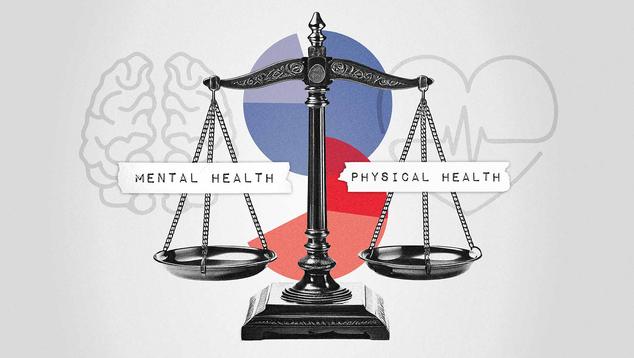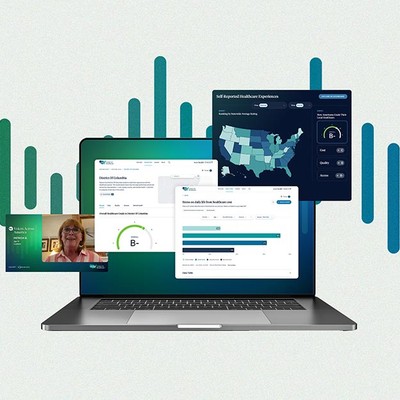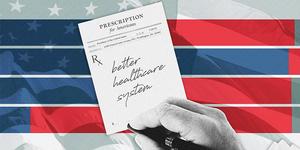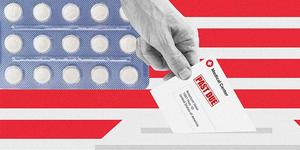Editor's Note: This research was conducted in partnership with West Health, a family of nonprofit and nonpartisan organizations focused on healthcare and aging.
WASHINGTON, D.C. -- In September, the federal government issued a rule intended to make it easier for Americans with private health coverage to access treatment for mental health and substance-use disorders. The rule clarifies and strengthens the Mental Health Parity and Addiction Equity Act (MHPAEA) of 2008, which -- according to a recent West Health-Gallup poll -- has broad support among the American public.
Majorities of U.S. adults in both political parties, along with independents, say they support the federal law that requires insurance companies to provide coverage of mental health and substance-use disorder care that is equal to coverage of medical care for physical conditions. Though the updates to MHPAEA align with public opinion, the poll finds that many Americans are skeptical that insurance companies will comply.
The West Health-Gallup Healthcare Survey of 3,660 U.S. adults was fielded Sept. 9-16 via web using the Gallup Panel.
Support for Mental Health Parity Law Crosses Political Party Lines
Nearly four in five Americans say they either strongly (48%) or somewhat (31%) support the federal parity law requiring insurance companies to cover mental health, substance-use disorder, and physical care the same. This includes 95% of Democrats, 79% of independents and 67% of Republicans.
Women are more likely than men to say they support the law (83% versus 74%). Women and men who identify as Democrats express nearly unanimous support for the law, with 95% of women and 94% of men saying they strongly or somewhat support it. However, there are gender gaps among both independents (87% of women versus 73% of men) and Republicans (76% of women versus 58% of men).
Half of Americans Do Not Trust That Insurance Companies Will Comply With Equal Coverage
The recent strengthening of the rules enforcing MHPAEA comes in response to insurance companies not being fully compliant with the law. Specifically, the U.S. Department of Labor found that many private health insurers limited treatment for mental health and substance-use disorder care more than for general medical care and surgery.
Half of Americans say they have little to no trust that insurance companies will comply with the federal law, compared with 43% who trust they will and 7% who are unsure. The respondents who said they do not trust insurance companies include 48% of Republicans, 55% of independents and 47% of Democrats.
Majorities Dissatisfied With Mental Healthcare Access Broadly, Doubt It Will Improve
Parity in insurance coverage for mental and physical care is not a guarantee that access to affordable mental healthcare will improve. The study finds that even with the MHPAEA in place, most Americans believe the government should be doing more to ensure access and are generally pessimistic about it improving in the near future.
More than seven in 10 Americans believe the government is not doing enough to ensure the public has access to affordable mental healthcare. Large majorities of Democrats (87%) and independents (73%) say the government is not doing enough, while a smaller majority of Republicans, 57%, agree.
Overall, women are more likely than men to express this dissatisfaction. Women and men who identify as Democrats are aligned in their attitudes, as 86% of Democratic women and 89% of Democratic men say the government is not doing enough. Conversely, Republican and independent women (65% and 82%, respectively) are more likely than Republican and independent men (48% and 67%, respectively) to say the government is not doing enough to ensure access to mental healthcare.
The outlook for the future of mental healthcare access leans pessimistic. Six in 10 Americans say it is “not very likely” or “not likely at all” that access to affordable mental healthcare in the U.S. will improve in the next five years. Overall, only 8% say it is “very likely” to improve.
Some subgroups of Americans are slightly more optimistic than their counterparts on this question, including women, Black adults, Hispanic adults and Democrats. Looking at gender differences within political parties, there is a slight gap in attitudes between women and men who are independent, with 40% of women and 32% of men saying it’s likely access will improve. There are negligible differences between genders among Democrats and Republicans.
Implications
Having access to affordable treatment that addresses mental or emotional health has become an important part of the public conversation about healthcare policy in the U.S. today. Prior West-Health Gallup polling shows that Americans feel the quality of mental healthcare is inferior to care for physical health issues in this country. There is broad agreement that the government should do more to improve access to affordable mental healthcare and make sure the parity law is followed.
This sentiment is consistent across political party lines, as majorities of Democrats, Republicans and independents generally support laws like MHPAEA. Though the public continues to express a desire for more to be done, the new rules that aim to help reduce barriers to coverage of mental health and substance-use disorder care represent progress toward meeting public demands.
To stay up to date with the latest Gallup News insights and updates, follow us on X @Gallup.
Learn more about how the Gallup Panel works.





